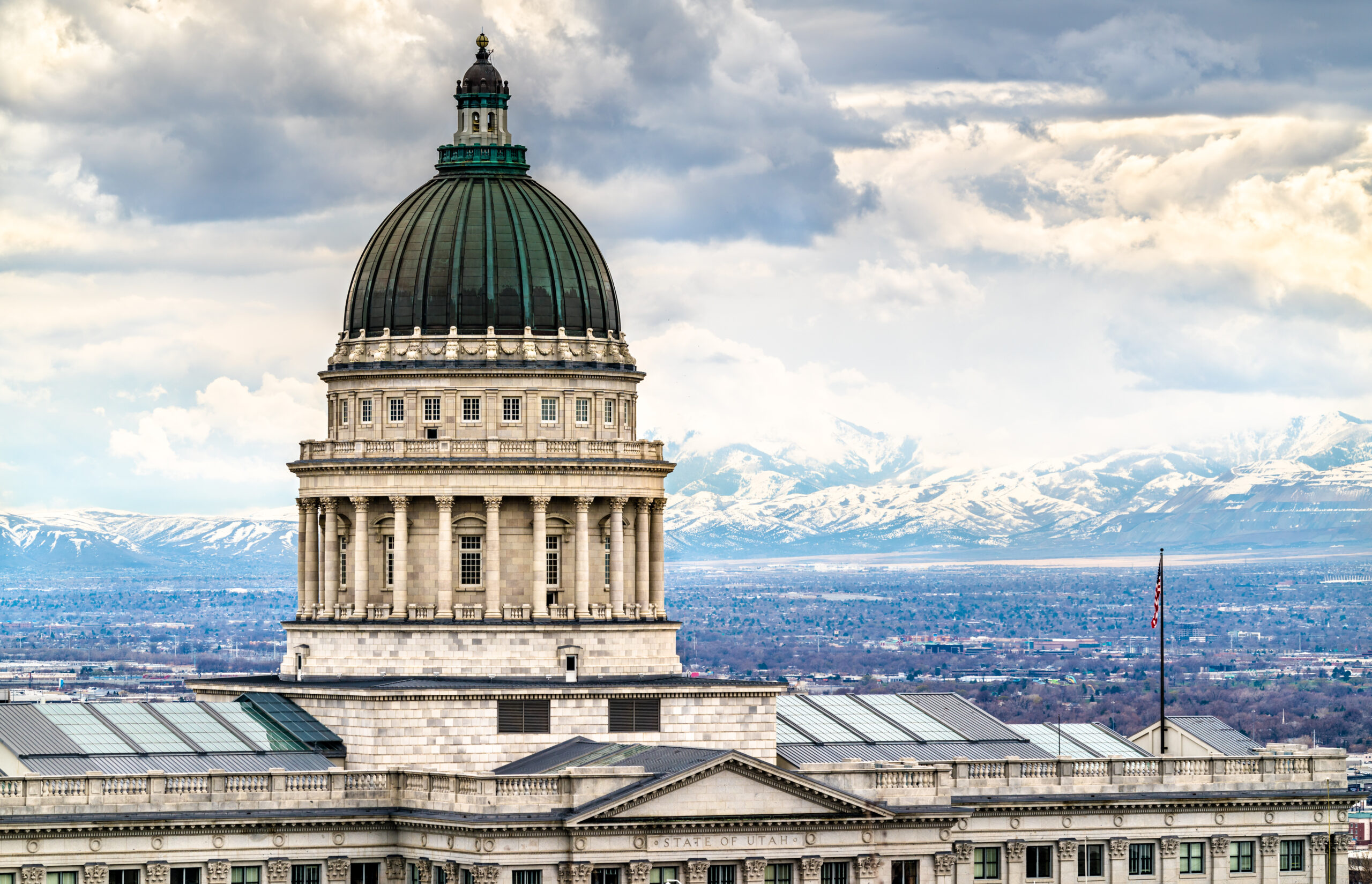
Utah leads out with DAO-recognizing legislation

By nature, the words “decentralized” and “government” don’t really mix, but the state of Utah is looking to marry the two with HB 357, known as the Utah DAO Act.
A decentralized autonomous organization (DAO) is an organization structure popular in the blockchain space that doesn’t have a central governing body. Instead, members of the DAO manage the organization through shared voting and smart contracts.
HB 357, signed into law in March, recognizes DAOs as legal entities. Without recognition as legal entities by the government, DAOs were not able to enter legal contracts and didn’t offer limited liability protections for DAO contributors.
DAOs are a relatively new type of entity that doesn’t fit perfectly into current business regulations. They can consist of thousands of members and can form for a variety of reasons, ranging from investments to the Utah-based group that tried to raise billions to buy the Denver Broncos last year.

Limited liability protection is the top feature of the bill, says Robert Lamb, a lawyer and member of the state’s Blockchain and Digital Innovation Task Force. From the moment Lamb joined the task force, he had this bill in mind.
“I showed up for the first meeting with the DAO act in my pocket,” Lamb says.
Utah isn’t the first state to create a law regarding DAOs. Wyoming introduced legislation in 2021, putting DAOs under its LLC rules in what Lamb calls an “LLC wrapper.”
While Lamb says he doesn’t think LLC legislation applies perfectly to DAOs, Wyoming recognizing DAOs drew them to the state.
“To try to marry those two things, I didn’t think was a perfect fit, but I also saw that Wyoming was effective in that a lot of DAOs rushed to Wyoming to quote-unquote ‘incorporate’ because they wanted that level of legal personality and protection,” Lamb says. “I thought it was brilliant what Wyoming had done, but I thought, well, we should do something different—more comprehensive—if we have the opportunity.”
The Utah DAO Act requires a registered agent of each DAO to be maintained with the state. At least one organizer of a DAO must be an individual who files with the state.
According to the bill, members of the DAO will not be held accountable for “obligations incurred by the decentralized autonomous organization” or for “the wrongful act or omission of any other member.”
Even with the new act, there’s nothing requiring a DAO operating in Utah to register. Blockchain and Digital Innovation Task Force Member David Wyly says the bill just makes registering an option, allowing DAOs to take advantage of certain legal benefits, such as entering into legally binding contracts.
“It adds more legitimacy,” he explains. “And when you start adding more legitimacy and more of a framework for these DAOs to operate in, I think it shines a light on the good actors, and the bad actors will typically crawl away.”
"It adds more legitimacy. And when you start adding more legitimacy and more of a framework for these DAOs to operate in, I think it shines a light on the good actors, and the bad actors will typically crawl away."

HB 357 went through the legislative processes earlier this year but won’t go into effect until Jan. 1, 2024. The bill’s sponsor was Rep. Jordan Teuscher (R-Salt Lake).
Despite a long-standing interest in blockchain technology and having bought bitcoin for the first time in 2018, Teuscher is a self-described novice in crypto. Still, he sees big things in Utah’s Web3 future.
Among the other blockchain and crypto legislation, the state has worked on SB 160, which introduces a “sheriff node program.” The program could potentially reverse fraudulent blockchain transactions—something that doesn’t fit into the current world of cryptocurrency.
“Again, very antithetical to the immutable nature of blockchain, but something consumers are asking for,” Teuscher says.
SB 160, signed by Gov. Spencer Cox in March, authorizes the Utah Attorney General’s Office to operate a blockchain node to, based on court orders or arbitrations, reverse blockchain transactions from a reversible blockchain that agrees to be subject to Utah court jurisdiction.
Whatever is next, it appears future possibilities are wide open. If Teuscher and members of the Blockchain and Digital Innovation Task Force have their way, the future is in Utah.
“There’s just so much benefit, but it’s important as part of that benefit to be first,” Teuscher says. “If you’re last to the party here, the parade’s gone, right? They’ve established their roots somewhere else, and so I think Utah is uniquely qualified to be able to step into this space and try to make a difference.” ![]()



